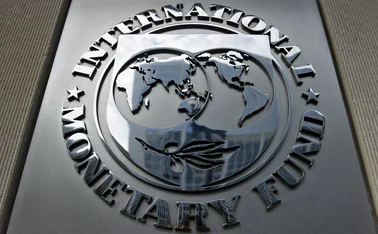
Debt deal struck but ‘heated’ discussions await Argentine president in congress
Analysts ultimately expect it to be approved though it may be an ‘uphill battle’

The creditors may have said yes, but Argentine president Mauricio Macri still faces an "uphill battle" to get the debt settlements on its 2001 default agreed in congress, a task analysts say is achievable but not easy.
After 15 years of going back and forth, Argentina has finally managed to settle the last of its debt negotiations with remaining creditors – agreeing to pay $4.6 billion to NML Capital, Aurelius Capital Partners, Davidson Kempner Capital Management and Bracebridge Capital.
"A settlement with the holdouts is an important milestone for the economy and for the progress of Mr Macri's reform agenda and promises, since it will imply the economy will get access to borrow at international markets again," says Lisa Alexandersson, an economist for Nordea.
The deal equates to 75% of "the funds' judgments" against Argentina, including principal, interest and certain legal fees and expenses incurred during the course of the litigation. It follows an earlier deal with other bondholders in February.
The country had set a February 29 deadline for accepting the offer, the first formal deal the country had offered holdouts. But the settlement entails legislative change, and subsequent approval from Argentina's congress.
Currently, Macri's party holds 81 seats out of 257 in the lower house, and 40 out of 72 seats in the senate. However, analysts remain optimistic he will see the two laws standing in the way of the deal overturned.
"There is nothing shocking about the terms of the deal for the opposition to oppose. The congress is set to reconvene again later this month and therefore we could have an approval by early April," says Alexandersson.
Chief economist at Medley Global Advisors, Ignacio Labaqui, agrees, noting the "repeal of the Sovereign Payment Act and the Lock Law is highly probable". Diego Colman, a LatAm economist at 4CAST, nonetheless feels it will be an "uphill battle".
Despite not holding a majority, it is widely believed most senators will vote in favour of the Argentine president as they are "closely linked to the provincial governors whose finances are in a critical condition", Labaqui says.
However, he acknowledges the debate will be "heated" given the importance of the matter; also recognising there is a risk senators will accuse the administration of "selling out" to the so-called 'vulture funds'. The deadline for payment is April 14.
Finance minister Alfonso Prat-Gay has assured people central bank reserves will not be used to fund the payouts; instead the Treasury will issue bonds to the creditors, he announced at a press conference.
The payment "should happen within two months", Colman says, making the "decade-long dispute between disgruntled creditors and Argentina" a "thing of the past".
Argentina's next challenge
Achieving a deal would mark the fulfilment of one campaign promise, but other economic challenges remain. The next hurdle for Macri is "clearly curbing inflation", says Labaqui.
During the last quarter of 2015 inflation accelerated, as expected, after the lifting of currency controls. Official statistics put it at 26.9% in December. The peso has depreciated 38% against the US dollar since December 16. This acceleration was "foreseeable", Labaqui says.
Inflation should, however, fall back, he says, citing the central bank's efforts to reduce the pace of monetary expansion. Nonetheless, he notes forthcoming annual wage negotiations will pose a "challenge".
Colman, meanwhile, expects the exchange rate to stabilise "once we start seeing steady USD inflows, and confidence in the Argentina economy recovery".
Nonetheless, he expects the economy is likely to slide into a "mild" recession this year as the government introduces austerity measures to rein in spending and reduce the fiscal deficit, which stands at around 7% of GDP.
Only users who have a paid subscription or are part of a corporate subscription are able to print or copy content.
To access these options, along with all other subscription benefits, please contact info@centralbanking.com or view our subscription options here: http://subscriptions.centralbanking.com/subscribe
You are currently unable to print this content. Please contact info@centralbanking.com to find out more.
You are currently unable to copy this content. Please contact info@centralbanking.com to find out more.
Copyright Infopro Digital Limited. All rights reserved.
You may share this content using our article tools. Printing this content is for the sole use of the Authorised User (named subscriber), as outlined in our terms and conditions - https://www.infopro-insight.com/terms-conditions/insight-subscriptions/
If you would like to purchase additional rights please email info@centralbanking.com
Copyright Infopro Digital Limited. All rights reserved.
You may share this content using our article tools. Copying this content is for the sole use of the Authorised User (named subscriber), as outlined in our terms and conditions - https://www.infopro-insight.com/terms-conditions/insight-subscriptions/
If you would like to purchase additional rights please email info@centralbanking.com
Most read
- Bernanke calls for total redesign of BoE forecasting
- Taking stock of Bernanke: the original sin of forecasting
- Bank of England: time for fourth-generation forecasting tools?







